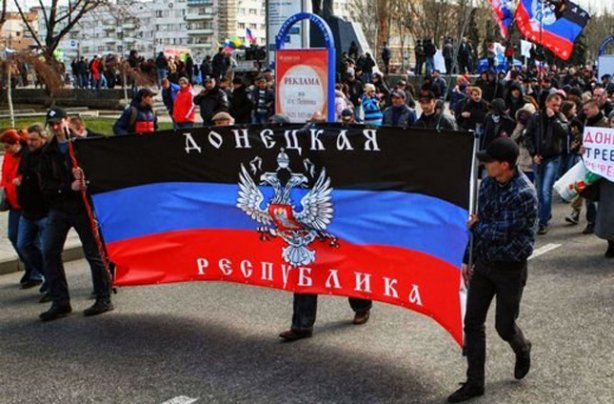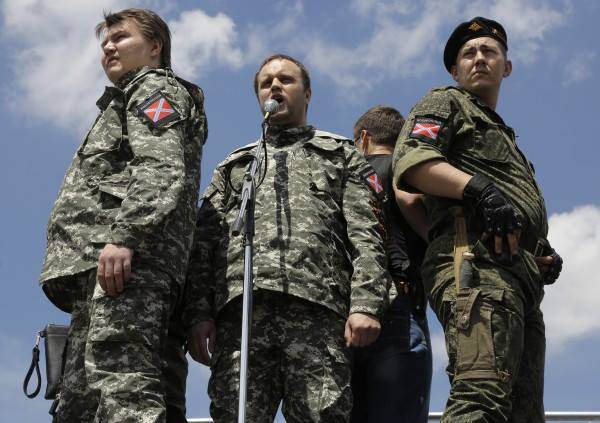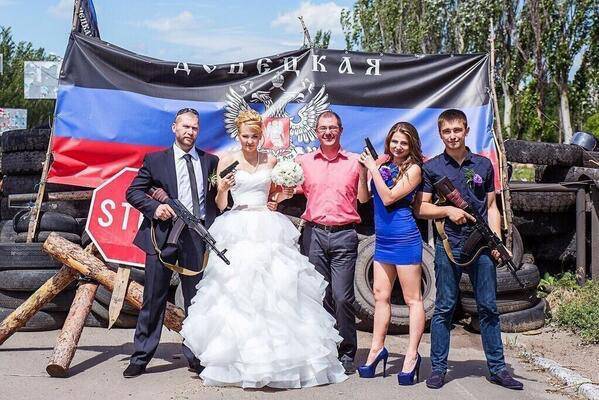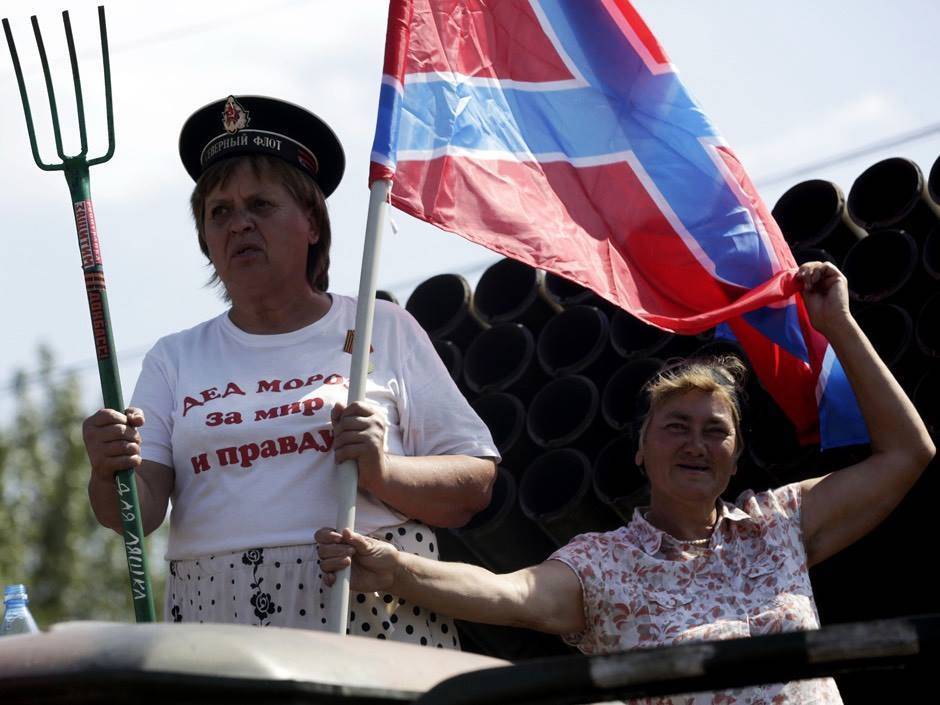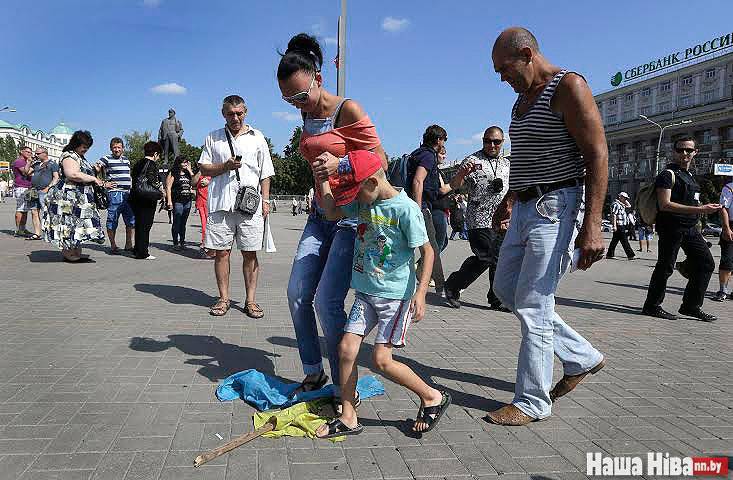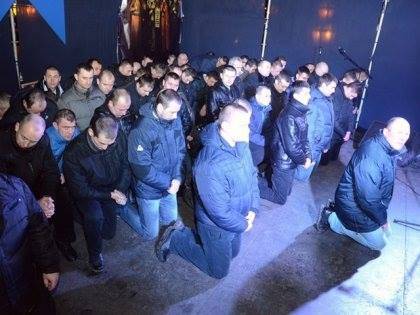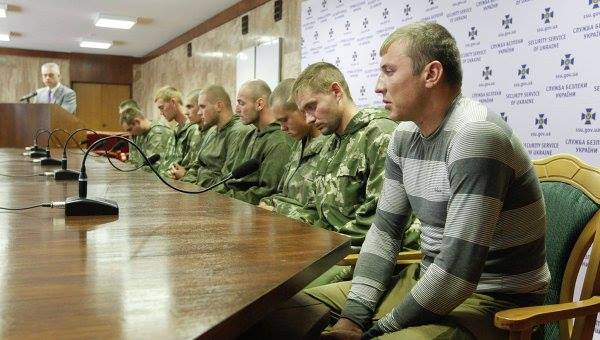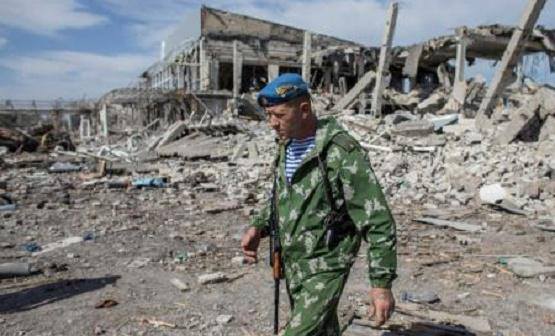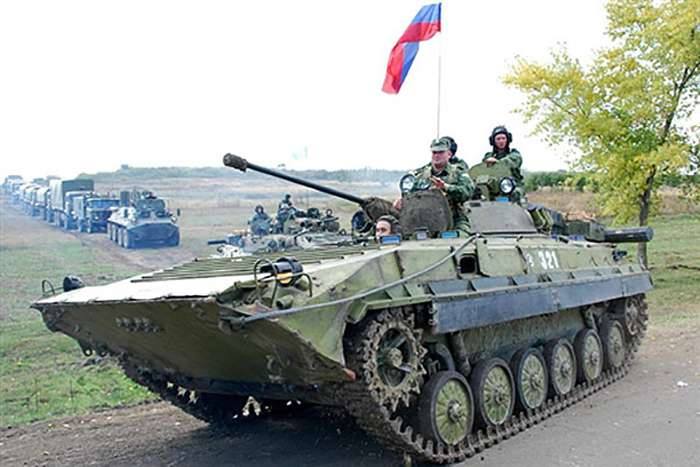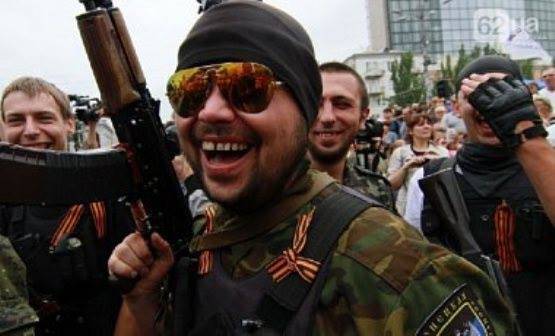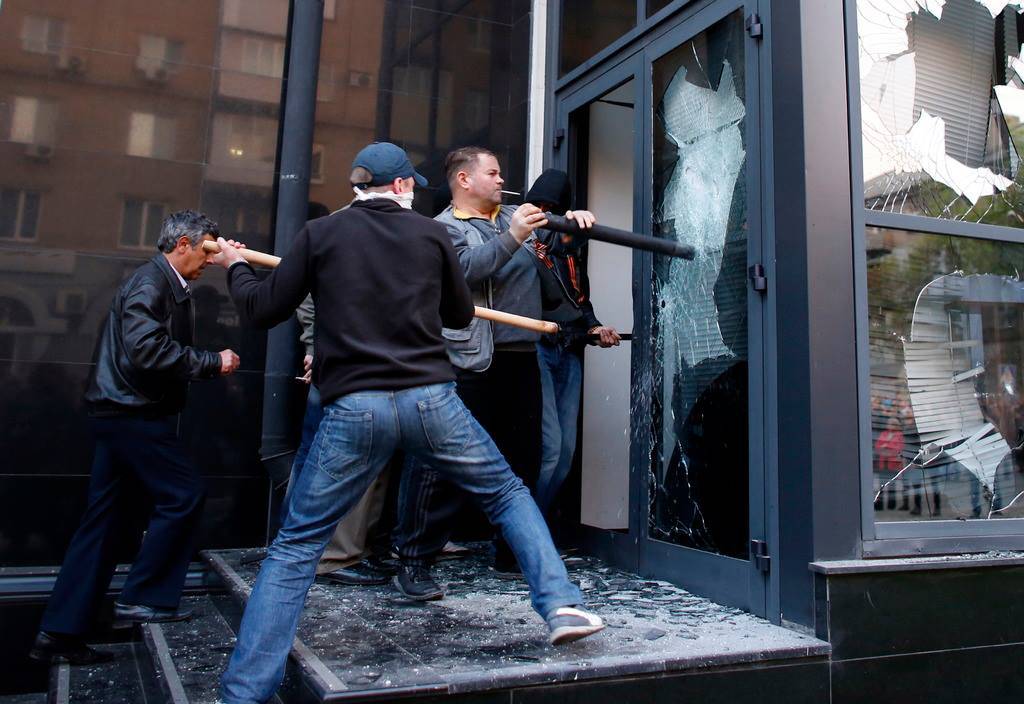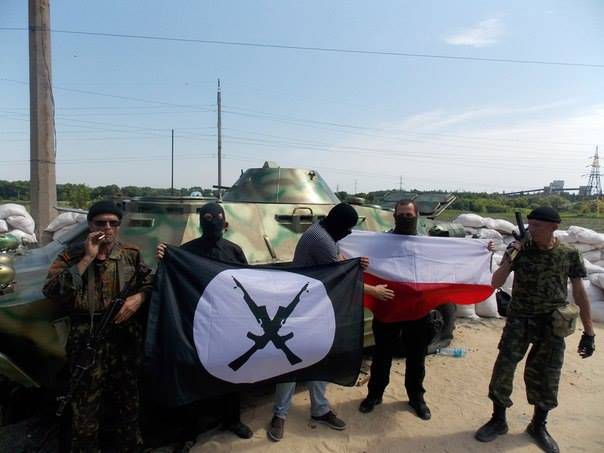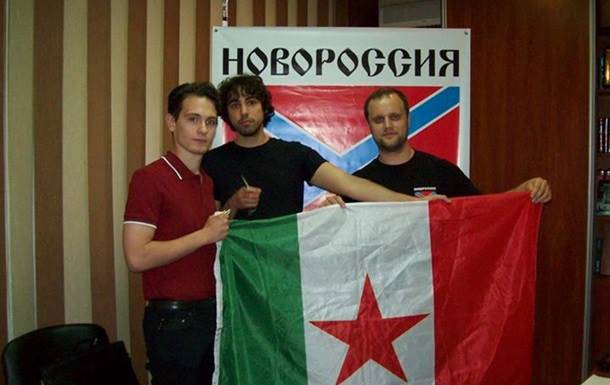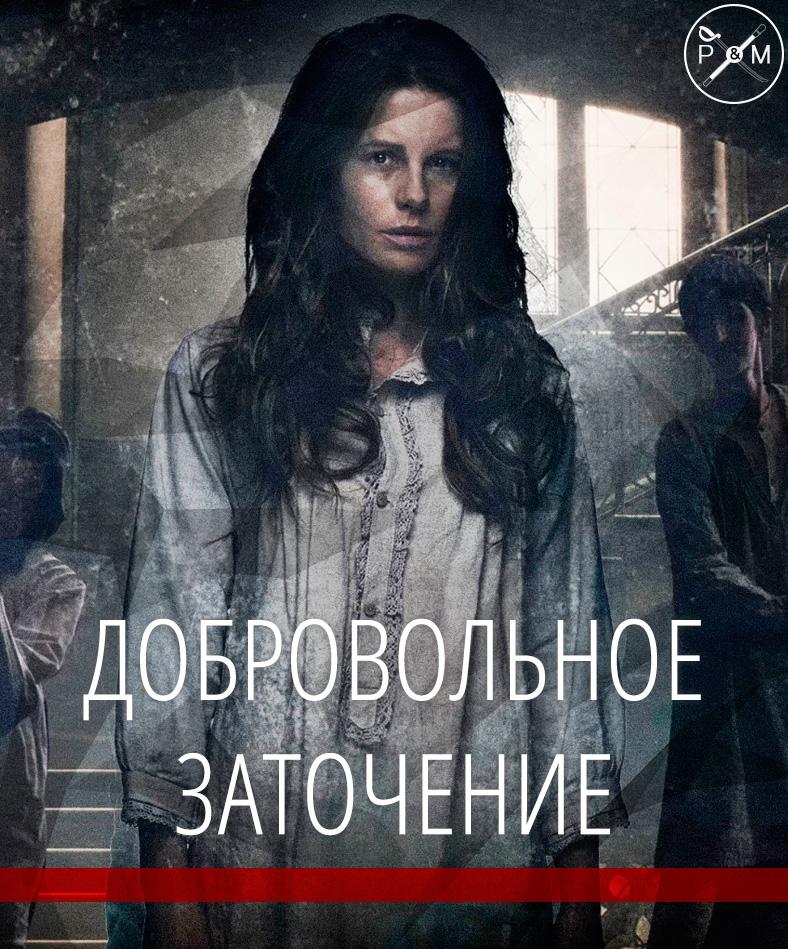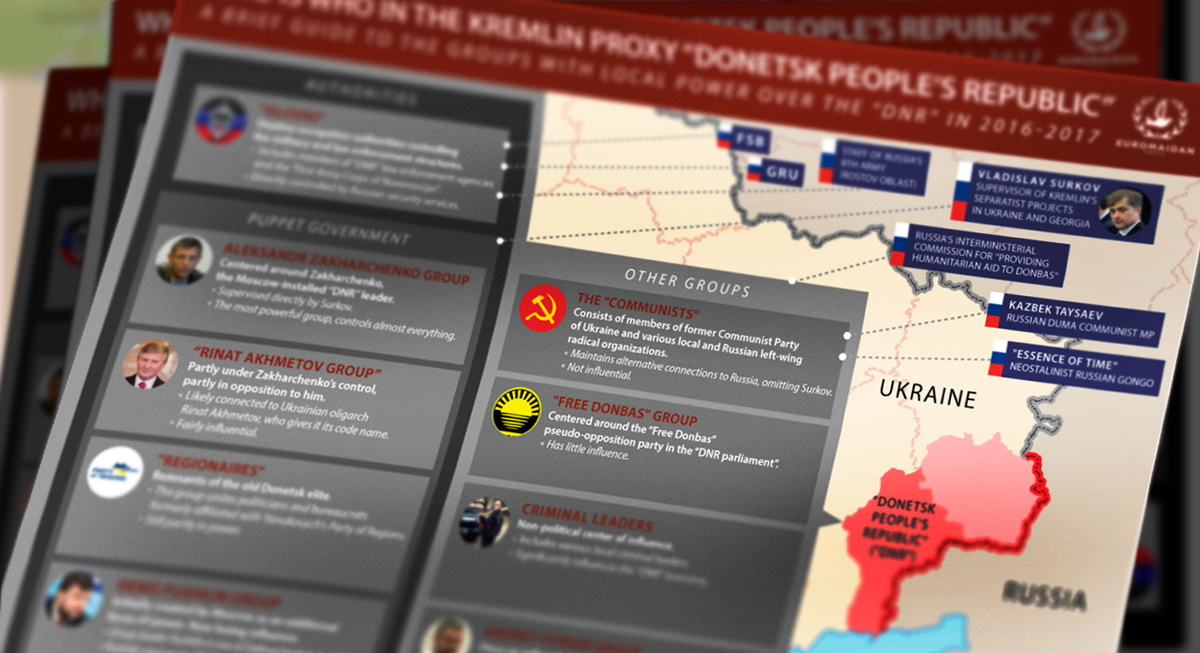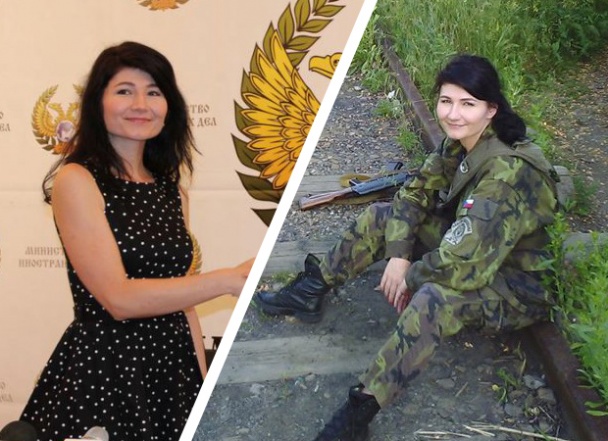Russian intelligence agencies and politicians as well as authorities in Donetsk and Kyiv all have their respective interests in the DNR; however, a comprehensive understanding of its structure is still far away. Foreign intelligence officers, diplomats, and international negotiators are more aware of the internal situation in the DNR than Ukrainian secret services or ATO headquarters, as the Ukrainian side mostly contacts the DNR while exchanging prisoners in the field. This is quite an unfortunate situation for making predictions of events to come.
The first division in the DNR goes along the line of “politicians” versus “army commanders,” with the latter clearly dominating. The military units don’t follow orders. “Soldiers completely defy us,” complains one representative of the DNR authorities. But there are many other ways to group those people identifying themselves with the DNR.
Read more: Anarchy in the Donbas: Russian proxies turn on each other
1. Ideological supporters
People of this group supported the DNR from the very beginning, albeit with different motivations. The ideological supporters are the summary intellect of the DNR, which is why the field commanders tolerate them despite hating them. Kyiv authorities negotiate most often with representatives of this group. Ideological supporters generally fall into two categories: Republicans and Antikyivans
Republicans
They are driven by the idea of the independent Donetsk Republic since the Ukrainian-Soviet War of 1917-1921. Historically, they have been relatively uninfluential, even up to the time of the first winter disorders and seizing of administrative buildings in Donetsk. However, with the rise of the DNR’s outlook - from federalization to autonomy and even a separate republic - so did theirs, as the Kremlin needed an ideological base for justifying the referendum and formation of “Donbas People's Militia.” Gaining control over the republicans has turned out to be complicated for Kremlin: Though Moscow’s sponsorship was accepted, they have still strived to be independent, or at least autonomous.
Activities: Republicans try to control control schools, universities, hospitals, create a new currency and pay ‘pensions’ to village citizens. They are the ones preparing their own “elections” for a DNR “Parliament” on November 3.
Leader: Andriy Purgin.
Purgin’s team is devoted to him, as all the members have received an opportunity to take authority positions in the DNR, and they have a reason to fight for its republican status. Some members are not currently paid for their work, but nevertheless they have not left their posts.
“I used to get into a mine every day. Now I live as a person deserves to live. I have a flat in the city center and a car… And the only thing I have to do is to watch the roadblock,” confesses one of the “republicans.” Apparently, he doesn’t care much that it is somebody else’s flat and car that he is using.
Antikyivans
This group categorically opposes the new Kyiv authorities, and considers Maidan supporters to be “an armed coup,” the Ukrainian authorities elected after Euromaidan as “illegitimate,” and their state policies “imposed by Washington and IMF.” Generally, “Antikyivans” are ready to discuss the issue of Donbas being included to Ukraine, but only under certain conditions.
Leaders: Oleksiy Hranovsky, Oleksandr Khryakov, Oleksandr Khodakovsky
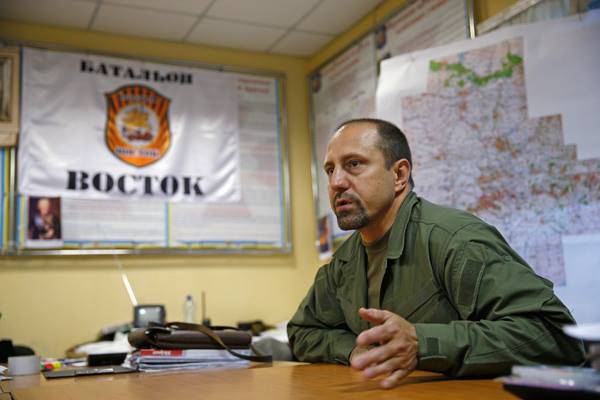
There had previously been another subgroup within this group of ideological supporters, a pro-Russian one aiming to join Donbas to Russia. It broke apart after it became obvious that Russia does not need Donbas, and virtually all members of this group have since left Donetsk Oblast.
2. The Betrayed
The betrayed group is the second extensive group in the DNR. People from the group feel they have been treated unjustly, and they joined the DNR to avenge themselves or because of being afraid and frustrated. Two subgroups can be singled out here as well: those betrayed by local authorities and betrayed by Ukraine.
Betrayed by local authorities
The betrayed by local authorities subgroup was left without protection when Viktor Yanukovych escaped from the country. Nobody was eager to be responsible for people supporting the former-party-in-power. Donbas residents were solving their troubles in different ways - for instance, some residents (among them security forces members formerly working for Yanukovych) were ready to cooperate and socialize with the new authorities.
Leaders: Oleg Dykyi, DNR “Internal affairs vice-minister”; the above-mentioned Khodakovsky is also involved in this group.
Betrayed by Ukraine
The betrayed by Ukraine subgroup possesses a variety of motives for wanting to live in the separatist “republic.” It includes the Berkut riot police from Lviv involved in Euromaidan crackdowns, which were publicly brought to their knees and then sent to fight in Donbas for the Kyiv authorities.
Having arrived in Donbas, the Berkut troops defected to the DNR side because of their public humiliation. Deserters from the Ukrainian army are also part of this group; for instance, some paratroopers from the 25th brigade who complained about being forcefully drafted to the army. Donbas residents who were not supported by Ukrainian authorities in important practical issues, relatives and friends of civilians who died from shelling, and local residents who had suffered from soldiers of Ukrainian battalions also ended up in this group.
3. External participants
The vast third group active in the DNR. They are drawn from the ranks of consultants in expensive suits with Moscow State University diplomas, but who are squeamish when talking with the rough-hewn ideological supporters, “militia trainers” and Russian army units. This group was treated well when the prospects of joining Russia were still high, but after Putin failed to recognize the self-proclaimed states, local DNR adherents became cautious about the Russian “guests” and have attempted to keep them out of positions of local authority.
The last representative of this group to hold a position in the DNR leadership was Vladimir Antyufeyev, the “former” KGB agent who had previously run Transnistria’s secret services. He has also since left Donbas.
The DNR cannot wholly distance itself from Russian influence. Russia delivers not only shipments of weapons and ammunition (which is not that crucial, as the Ukrainian army had left ample weapons supplies when retreating), but also humanitarian assistance: food, warm clothes, medicine. Yes, seriously - not long ago Donetsk got a shipment of insulin from Russia, which is in scarce supply in the DNR. It is this Russian humanitarian aid that still allows it to somewhat compete for the sympathies of the local population.
4. Marauders and bandits
They are the ones who will continue fighting under all circumstances and until the end. They have no way back after the crimes they committed: torture, marauding, kidnapping. All of the most treacherous local bandits, together with foreign “volunteers,” among which are many Chechens and other Caucasians, are gathered here. They are subdivided into small units and refuse to submit to anybody. They are the ones who are attacked by teams from other DNR formations tasked with hunting down marauders.
5. Adrenaline “tourists”
Adventure-seekers have come to fight for the DNR from all over the world, including from relatively well-off countries. For instance, Serbians, Ossetians, Scandinavians, Spaniards, French, etc. have been identified fighting for the DNR.
The current DNR head, Oleksandr Zakharchenko, has had difficulties in dealing with all of these groups. Russian news agencies have reported that he survived an assassination attempt on September 30th. ZN.ua reported previously that Zakharchenko’s car overturned on the road, and that it’s impossible that the crash was an accident.
Along with the groups mentioned above, local people live under panic and apathy. Some of them are leaving Eastern Ukraine and settle in other Oblasts and save their lives. People do not care anymore about who is going to be elected and who is going to be the winner, they have more important things to think of: how to defend their children and keep themselves from being killed.

